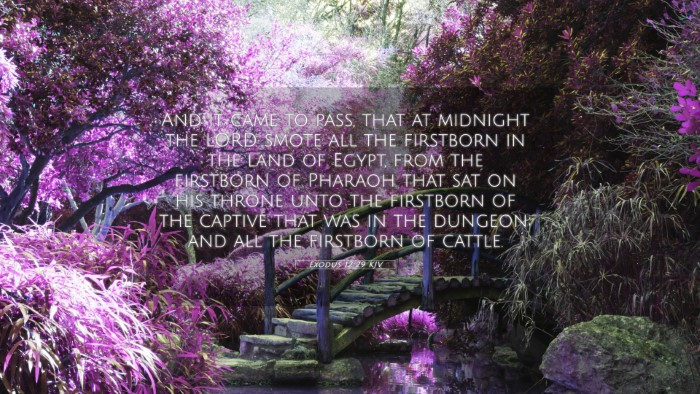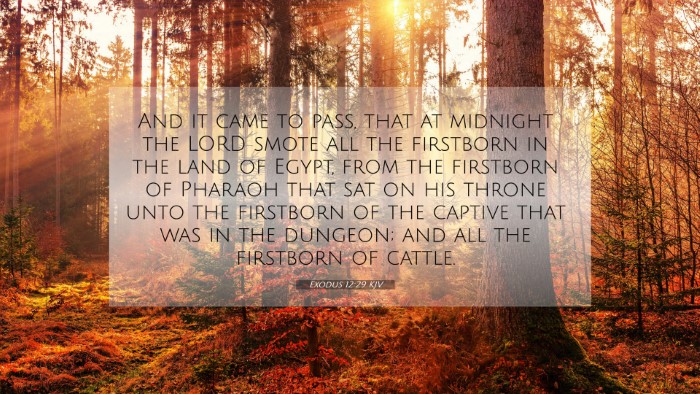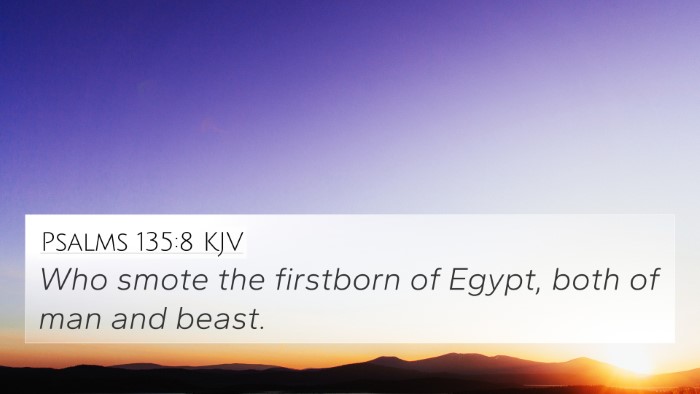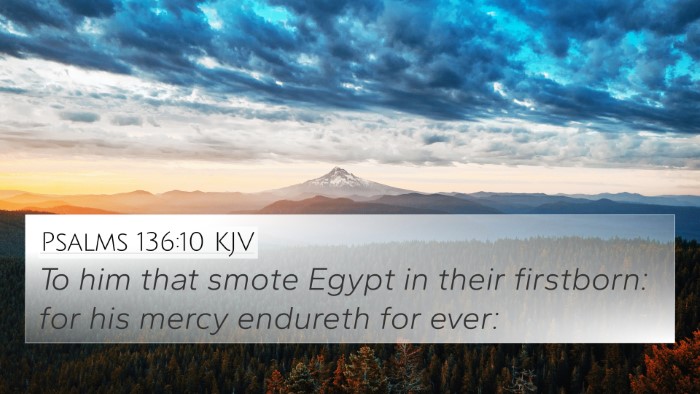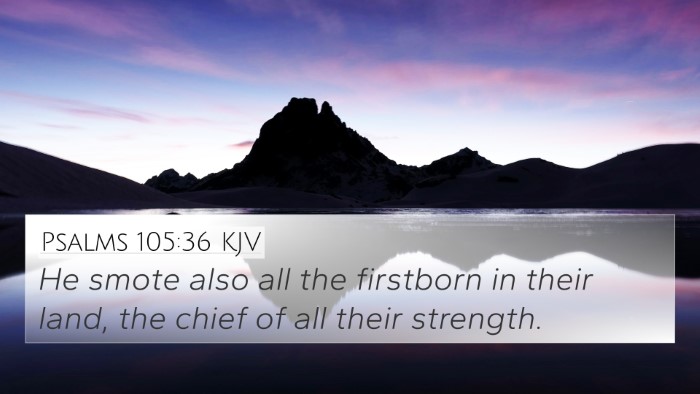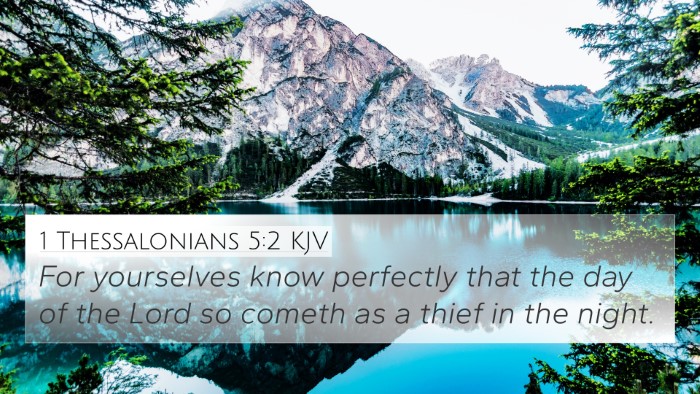This section features a detailed cross-reference designed to enrich your understanding of the Scriptures.
Below, you will find carefully selected verses that echo the themes and teachings related to Exodus 12:29 KJV. Click on any image to explore detailed analyses of related Bible verses and uncover deeper theological insights.
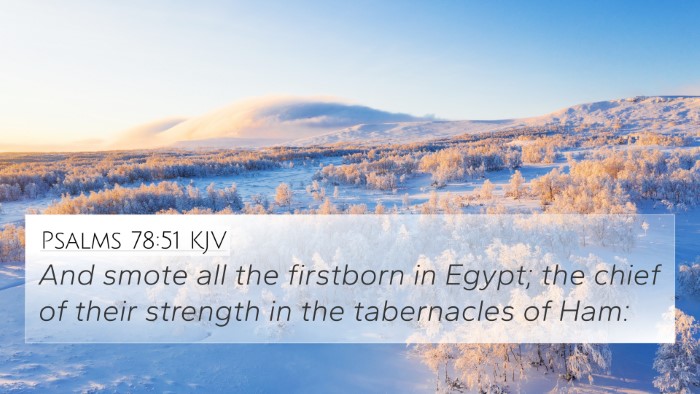 Psalms 78:51 (KJV) »
Psalms 78:51 (KJV) »
And smote all the firstborn in Egypt; the chief of their strength in the tabernacles of Ham:
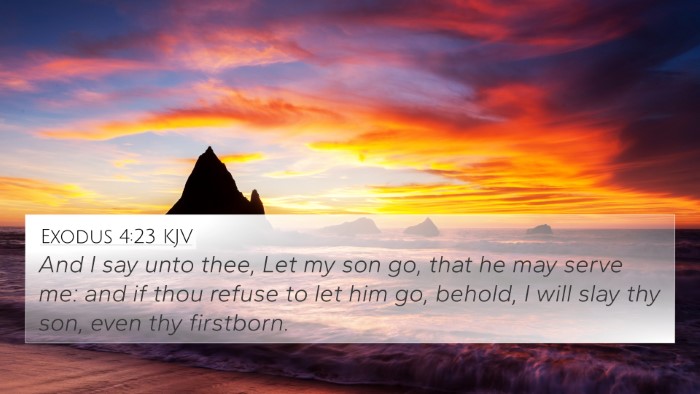 Exodus 4:23 (KJV) »
Exodus 4:23 (KJV) »
And I say unto thee, Let my son go, that he may serve me: and if thou refuse to let him go, behold, I will slay thy son, even thy firstborn.
 Numbers 8:17 (KJV) »
Numbers 8:17 (KJV) »
For all the firstborn of the children of Israel are mine, both man and beast: on the day that I smote every firstborn in the land of Egypt I sanctified them for myself.
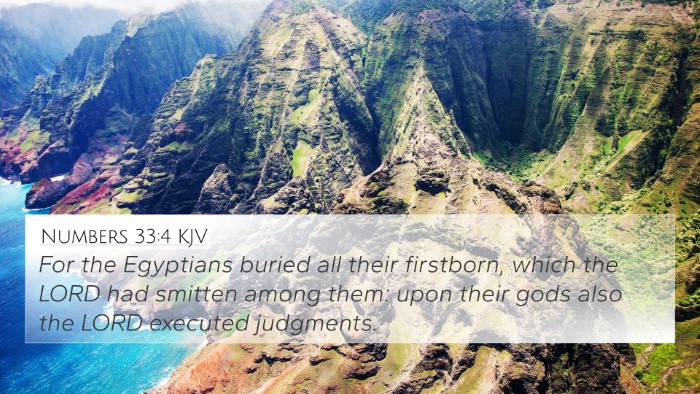 Numbers 33:4 (KJV) »
Numbers 33:4 (KJV) »
For the Egyptians buried all their firstborn, which the LORD had smitten among them: upon their gods also the LORD executed judgments.
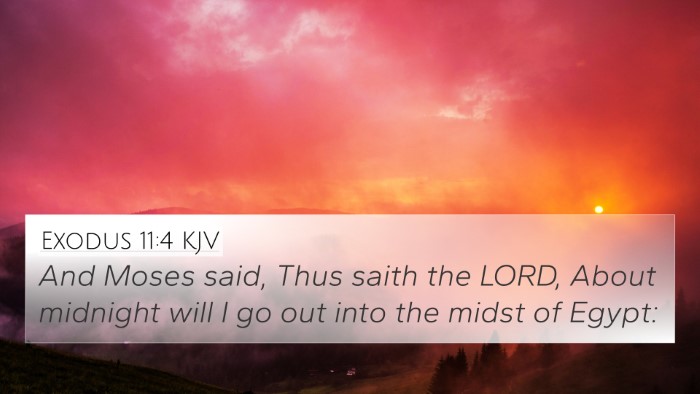 Exodus 11:4 (KJV) »
Exodus 11:4 (KJV) »
And Moses said, Thus saith the LORD, About midnight will I go out into the midst of Egypt:
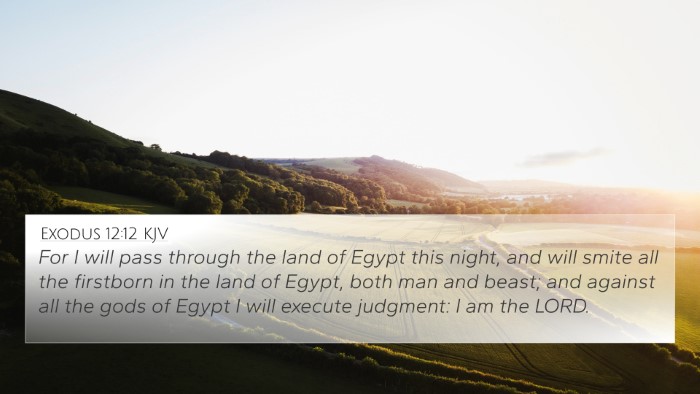 Exodus 12:12 (KJV) »
Exodus 12:12 (KJV) »
For I will pass through the land of Egypt this night, and will smite all the firstborn in the land of Egypt, both man and beast; and against all the gods of Egypt I will execute judgment: I am the LORD.
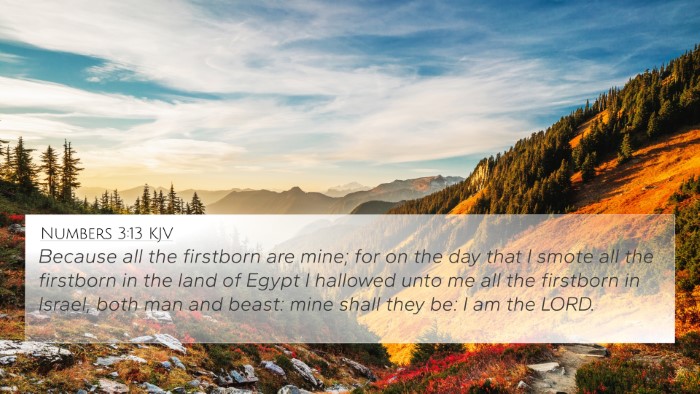 Numbers 3:13 (KJV) »
Numbers 3:13 (KJV) »
Because all the firstborn are mine; for on the day that I smote all the firstborn in the land of Egypt I hallowed unto me all the firstborn in Israel, both man and beast: mine shall they be: I am the LORD.
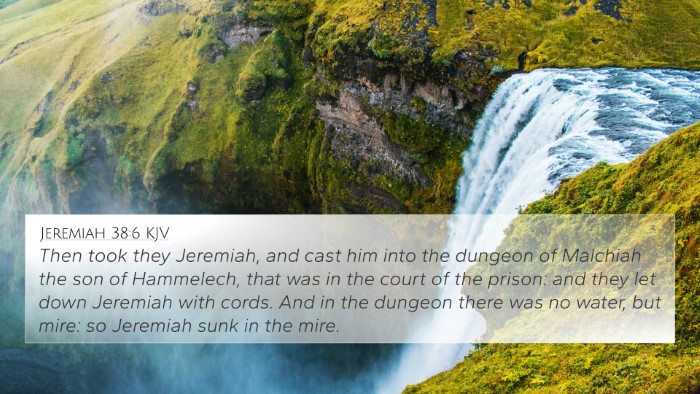 Jeremiah 38:6 (KJV) »
Jeremiah 38:6 (KJV) »
Then took they Jeremiah, and cast him into the dungeon of Malchiah the son of Hammelech, that was in the court of the prison: and they let down Jeremiah with cords. And in the dungeon there was no water, but mire: so Jeremiah sunk in the mire.
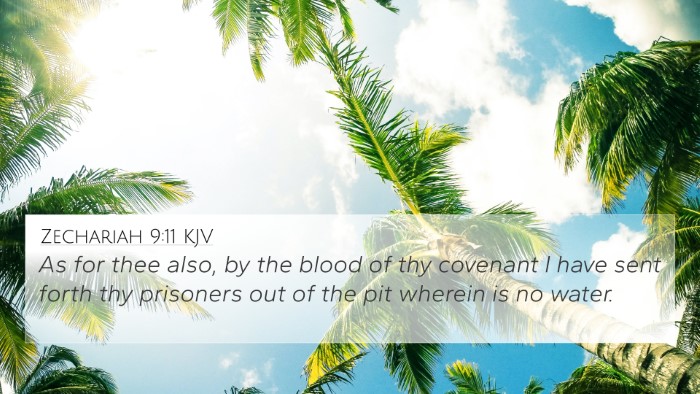 Zechariah 9:11 (KJV) »
Zechariah 9:11 (KJV) »
As for thee also, by the blood of thy covenant I have sent forth thy prisoners out of the pit wherein is no water.
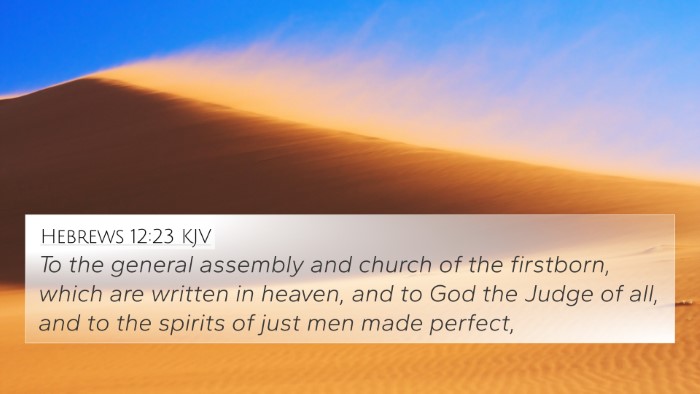 Hebrews 12:23 (KJV) »
Hebrews 12:23 (KJV) »
To the general assembly and church of the firstborn, which are written in heaven, and to God the Judge of all, and to the spirits of just men made perfect,
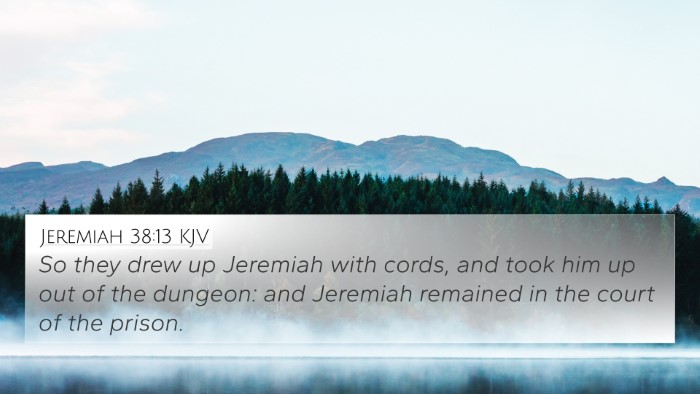 Jeremiah 38:13 (KJV) »
Jeremiah 38:13 (KJV) »
So they drew up Jeremiah with cords, and took him up out of the dungeon: and Jeremiah remained in the court of the prison.
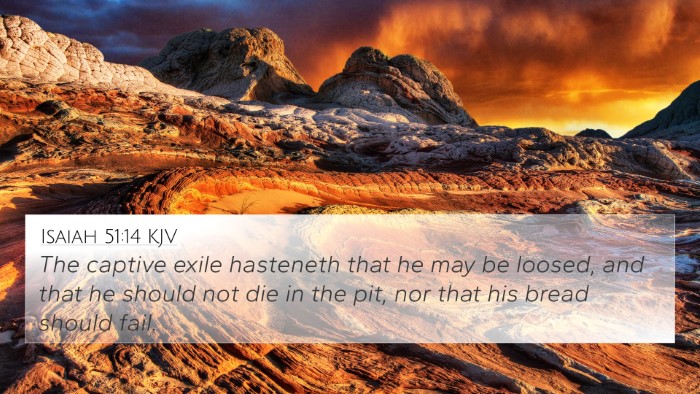 Isaiah 51:14 (KJV) »
Isaiah 51:14 (KJV) »
The captive exile hasteneth that he may be loosed, and that he should not die in the pit, nor that his bread should fail.
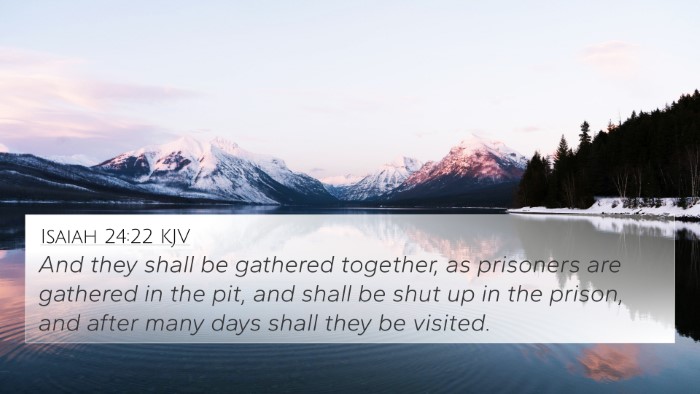 Isaiah 24:22 (KJV) »
Isaiah 24:22 (KJV) »
And they shall be gathered together, as prisoners are gathered in the pit, and shall be shut up in the prison, and after many days shall they be visited.
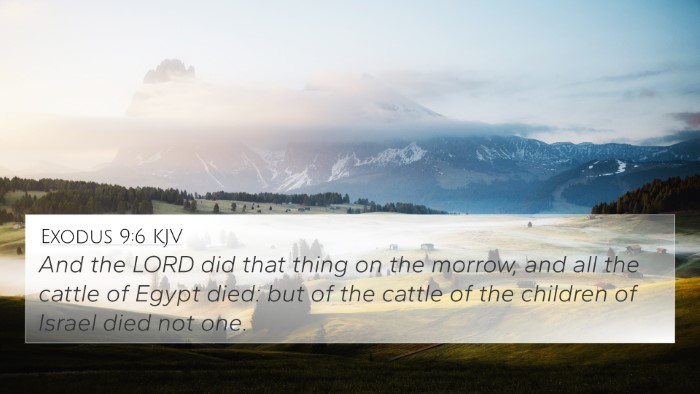 Exodus 9:6 (KJV) »
Exodus 9:6 (KJV) »
And the LORD did that thing on the morrow, and all the cattle of Egypt died: but of the cattle of the children of Israel died not one.
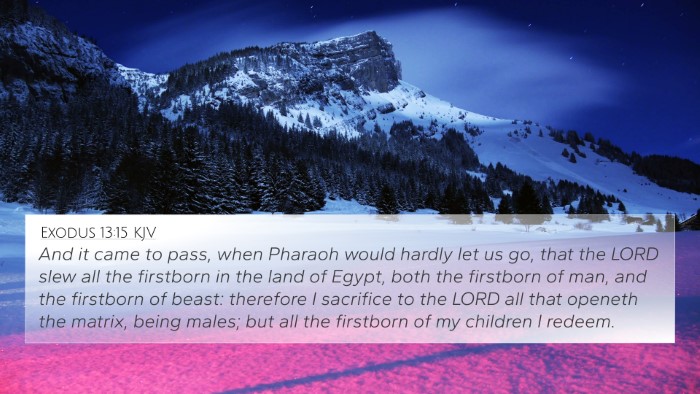 Exodus 13:15 (KJV) »
Exodus 13:15 (KJV) »
And it came to pass, when Pharaoh would hardly let us go, that the LORD slew all the firstborn in the land of Egypt, both the firstborn of man, and the firstborn of beast: therefore I sacrifice to the LORD all that openeth the matrix, being males; but all the firstborn of my children I redeem.
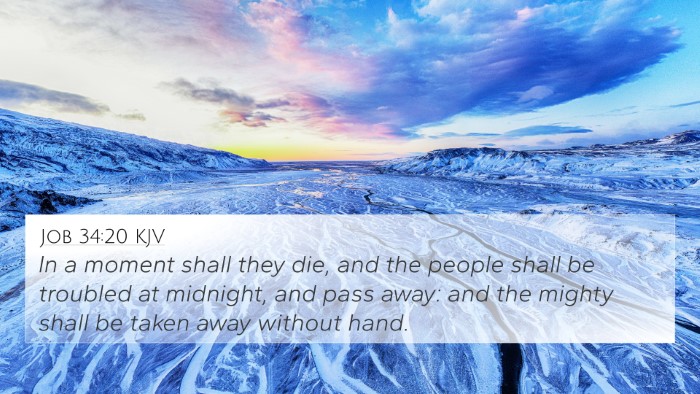 Job 34:20 (KJV) »
Job 34:20 (KJV) »
In a moment shall they die, and the people shall be troubled at midnight, and pass away: and the mighty shall be taken away without hand.
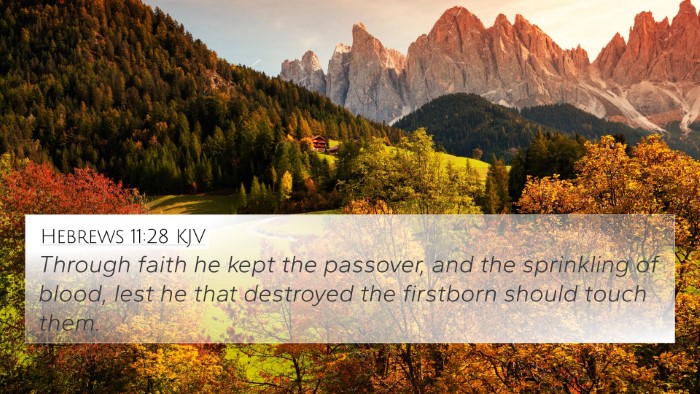 Hebrews 11:28 (KJV) »
Hebrews 11:28 (KJV) »
Through faith he kept the passover, and the sprinkling of blood, lest he that destroyed the firstborn should touch them.

